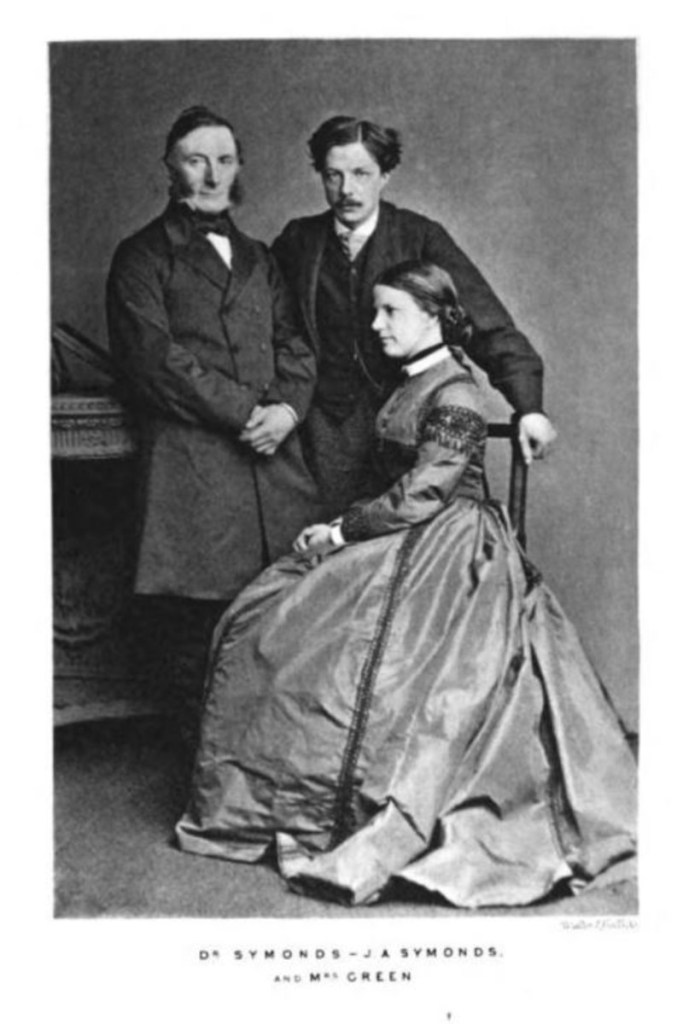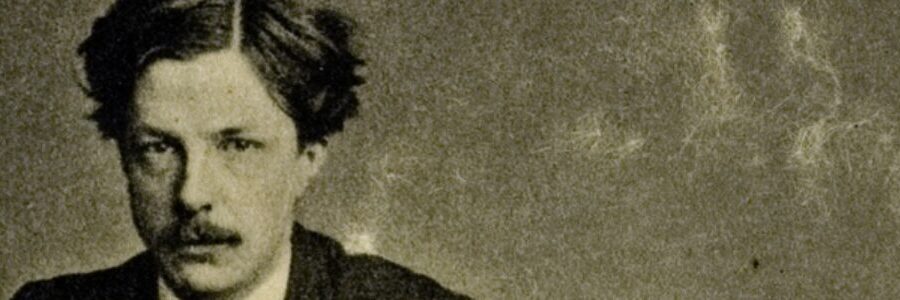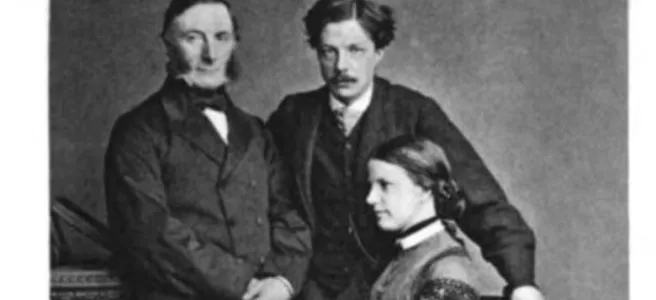What’s in a name? That which we call a rose
William Shakespeare, The Tragedy of Romeo and Juliet (1907, 2.2.43-44)
By any other name would smell as sweet…
Though I have heard this line from the Bard many times throughout my years of schooling, I rarely stopped to think critically on the importance of names until, while immersed in The Memoirs of John Addington Symonds, I noticed one important aspect: the repeated and insistent use of names. On every page of his Memoirs, Symonds names not only the people with whom he comes into contact but also the plants he finds attractive, the architectural styles he both adores and despises, the books he reads, and countless other aspects of his world–all of which bring his interest in names into clear focus. However, the name in which Symonds was above all interested was his own. While Shakespeare’s Juliet approaches the issue of names with an idealistic hope for their unimportance to society, Symonds takes the opposite view.

Within Victorian social structures, the elite was comprised of multiple social levels. This included both the wealthy but untitled members of society, like Symonds’s family; the gentry, or the members of society that often inherited land and wealth; and the peerage, who held titles and had family coats of arms. Even as Symonds was raised within the upper echelons of Victorian society due to his father’s “professional success,” he records in his Memoirs his aunt’s view that physicians “have no rank in society” (Symonds 2016, 121). The younger Symonds, therefore, remained a world apart from his titled peers, all of whom came from well-named families. Symonds felt this divide acutely. While he viewed himself as a possessor of “physical ugliness, common patronymic, undistinguished status, and mental ineffectiveness,” he considered his classmates “possessors of beauty, strength, birth, rank or genius” (2016, 122). In what can be seen as an attempt to bridge this divide between himself and his peers, Symonds began researching his family genealogy in his teens, attempting to find his family’s coat of arms. As part of this research, he even asked his sister, Charlotte, to copy passages from library books on different lines in their family’s history (e.g., Letters 1:115-116 (45) to Charlotte Symonds (Harrow, September 20, [1857])). Symonds’s concern over name and rank in society followed him into adulthood. For example, when thinking upon the early years of his courtship of his wife, Symonds wrote the following:
I deeply felt my own unworthiness of [Janet Catherine North]. […] In social position and birth I was hardly her equal. I carried an ugly surname.
2016, 258
To Symonds, names were powerful. They marked identity and therefore status within society. The perceived lack in his own name led him to question what he could bring to their union, though he decided to pursue the match regardless of these worries.
Though the teenage Symonds derided his family name as both “common” and “ugly” (2016, 122, 258), he still appeared to take pride in his ancestry. Examples of this pride are riddled throughout his Memoirs, even beyond the entire chapter he devoted to this subject (see p. 12 of editor Amber Regis’s “Introduction” for details). Within the Memoirs, Symonds wrote not only of the relatives that had a rather lasting impact on his life, such as his sister, Charlotte, but also of his ancestors with whom he never had contact. For example, while traveling through Normandy, on June 3, 1867, Symonds wrote to his wife about the supposed travels of one of his ancestors relating to a nearby town (2016, 294-295). This serves as just one such example of the presence Symonds felt of his ancestors and living relatives within his life.
But I vowed to raise myself, somehow or other, to eminence of some sort. […] My ambition took no vulgar form. I felt no desire for wealth, no mere wish to cut a figure in society. But I thirsted with intolerable thirst for eminence, for recognition as a personality.”
Symonds 2016, 122
From an early age, Symonds aspired to greatness, to make a name for himself. In fact, one of his regrets in life was that his father died before Symonds had “made [his] mark and won a name” (2016, 438, 445). Throughout the Memoirs, Symonds writes freely about their close relationship and the great influence his father had in his life. He even goes so far as to say that his father’s death provided him some level of freedom professionally, as his father’s opinions meant the world to him (2016, 439). While some relationships, like that with his father, were obviously too profound for Symonds to distance himself from as he created his own identity as an author, others could have quite easily been kept separate from his professional life. For example, his untitled, non-elite ancestors could have been left behind. Instead, Symonds chose to embrace them, even writing: “if I have any grit in me, I owe it to [the] proud humility of my forefathers” (2016, 86). In openly acknowledging and admiring his connections to these ancestors, he laid claim to that part of his history and his own identity. Symonds was only able to accept this part of his history by learning more about it. A change in perspective likely began when Symonds was a teenager as he traced his family genealogy and defined his family heraldic symbol, but the full change in perspective seems to have occurred later in his life, after the death of his father. By that point, Symonds had friends and comrades who came from all walks of life and all levels of society. While the exact reason for his change of heart is only known to Symonds himself, his new understanding is clearly visible when he describes burning the letters of his ancestors. As he puts it: “I could not bear to think of my own kith and kin, the men and women who had made me, liv[ing] in this haunted cavern” (2016, 85). Whatever his reasoning, whether a reassessment of family after the death of his beloved father or an acknowledgement that the character of a person is more important than their social rank, during his adulthood, Symonds accepted and took pride in the family history he derided in his earlier years.
I will leave the conversation about the intricacies of elitism within Victorian society and its effects on Symonds’s views of himself and others for another day. For now, I leave you with this: What’s in a name? For John Addington Symonds, Jr., a name provided connections to one’s own past and the freedom to express oneself through these connections, while simultaneously limiting one due to the expectations of a hierarchical society.
References:
Shakespeare, William. 1907. Shakespeare’s Tragedy of Romeo and Juliet. Edited by William J. Rolfe. New York: American Book Company.
Symonds, John Addington. 1967.The Letters of John Addington Symonds. Edited by Herbert M. Schueller and Robert L. Peters. Detroit: Wayne State University Press.
Symonds, John Addington. 2016.The Memoirs of John Addington Symonds: A Critical Edition. Edited by Amber K. Regis. London: Palgrave Macmillan.


One thought on “What’s in a name?”